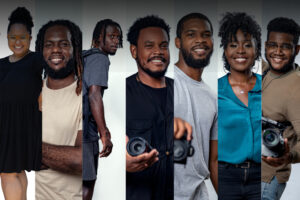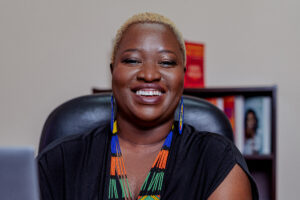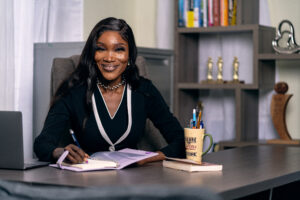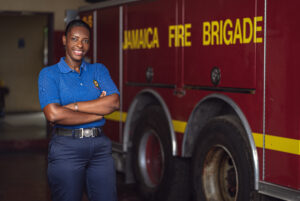- International Women's Day 2022
Designing sustainable products w/ Makeda Morrison
“The most successful entrepreneurs I know are optimistic. It’s part of the job description.”
- Caterina Fake, American entrepreneur and businesswoman
In line with the theme of International Women’s Day 2022 #BreaktheBias, Makeda Odana Morrison shares with us how she does just that as the lead designer and textile artist at Copper and Thread.
What industry are you a part of, and would you say it is inclusive to women?
The industry I’ve found myself in intersects with fashion and manufacturing. I handmake all the items we offer, from women’s wear to homeware. Strangely I had not considered myself a manufacturer until I met a member of the Jamaica Manufacturers and Exporters Association (JMEA) at a craft fair.
Locally, yes. I’ve been privileged to meet many female makers in so many fields and at so many different stages.
What inspired you to start your business?
Honestly, it stemmed from a need to provide something that I wanted. I had the worst luck purchasing bags and footwear in my late teens circa early twenties, and I saw what I thought was a simple solution to solving that; making those items myself! I was drawn to crochet because it seemed fascinating that two simple objects, yarn and hooks, could create a functional product. A friend of mine travelled while we were in uni and brought me some supplies, which I spent our next lecture fashioning into a laptop sleeve and bag. I would use it later that week to replace my store-bought tote.
https://www.instagram.com/p/CY2OjcKOWS_/
What action, if any, is needed to level the playing field in your industry?
Mentorship definitely. There is an influx of designers in the Jamaican fashion industry, as I think the soul of being Jamaican is a creative urge for invention. But in the sense of manufacturing and carving a niche for oneself, I think that’s something that needs to be spotlighted and honed.
How do you #BreaktheBias?
This question really resonates with me on a personal level. It took me many years to understand that being a creative and being an academic were not two separate personalities. Also, despite your age, if you have a passion for something, you should really go for it, despite naysayers, even if that person is you. There’s a common perception that crocheting is a grandmother’s hobby and largely just that, a hobby. But there are a few young persons in the industry who are not just really impressive but who have modernised crochet in a sense, who have elevated the craft. I fight those biases by trying to position myself as a sort of expert at what I do while highlighting how crochet both sustains and supports the fashion industry, especially when you think of its promotion of slow fashion. And that women can be manufacturers. If you start small, stay consistent and collaborate, growth is inevitable.
How can one show support for women?
By giving them platforms to speak about the things that move them, support them, and allow them to contribute as their authentic selves – platforms like this. Often, support is bolstered by this idea of showing up and what you can do. More importantly, however, think about what the other party needs. Many times, it’s a platform. Women are capable, they just need the opportunity to show that they are.
How can we help forge a gender-equal world?
Wow. This must be the age-old question. The first step would definitely be unlearning gender-normative biases; there are no “boy” jobs and “girl” jobs or “boy” industries and “girl” industries. The biggest thing for me has been this idea of dismissal when I say I helm a business, and then I say what it is, and it’s automatically assumed as just a hobby.
What are some gender biases – both conscious and unconscious – that you would say are engrained in Jamaican society and culture?
That men can lead, and women cannot. That men start businesses, but women have hobbies or that women need a dominant male guide. I’ve found such great inspiration and mutual success from female-led collaborative spaces.
What’s your advice to any woman interested in tapping into your industry?
As a fashion designer, find your unique selling point, an intersection between that niche and something you are genuinely interested in. This will require you to do some research. Find someone you can have open discussions with as a sounding board and mentor and jump in.
How easy would you say is it to break into this industry as a woman?
Ironically, though the major part of what I do has historically been seen as “women’s work”, it’s taken time to position myself in the industry. I would say it’s been five years of learning and two years of operation. It takes time to build a brand, to position yourself as someone people know, like and trust. You have to put yourself out there, provide value and show up every day. It’s been quite a journey, but it’s also been very eye-opening. There is a community of women across the industry who recognise that you have more bargaining power as a collective and seek to create opportunities for other women. I’ve met some amazing women who’ve given me opportunities, made referrals, or guided me on how to access support. That, I think, has made it all worth it. There’s a sort of strength in doing things a certain way, not despite being a woman, but because you’re a woman.
To find out more about Copper & Thread, follow them on Instagram @copperandthreadja.
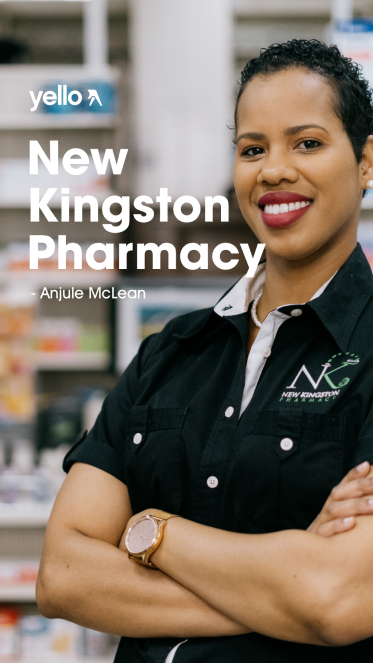


Get Discovered Today!
Sign up for Jamaica’s largest Print and Online directory
